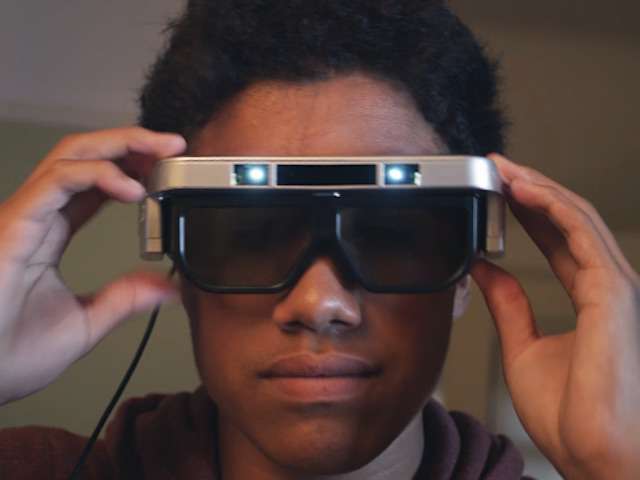CastAR Reportedly Lays Off Staff, Ceases Operations
Augmented reality technology is finally gaining the public’s attention, but one of the industry’s early pioneers won’t be there to enjoy the ride. CastAR reportedly failed to secure the funding needed to continue operations and shut its doors this week.
Four years ago, virtual reality and augmented reality were regarded as a future technology. Oculus began shipping Rift DK1 kits to backers of its famous Kickstarter campaign, but consumer hardware was years away, and Google had only just begun to show off Project Glass. With Oculus and Google getting all the buzz, a new company created by former Valve employees called Technical Illusions (now known as CastAR) launched its own Kickstarter campaign for a 3D AR/VR HMD that could do VR, AR, and projected AR.
CastAR’s foundations lie in the offices of Valve Software. The company's co-founders, Jeri Ellsworth and Rick Johnson, worked for Valve until their unexpected layoffs in February 2013. Ellsworth and Johnson had been developing augmented reality technology when Valve let them go, and miraculously, the company and its lawyers allowed them to leave with the tech they were working on. By mid-October, CastAR launched a crowdfunding campaign to secure the money needed to bring the product to market. CastAR asked for $400,000; it raised over $1 million.
We had a chance to try the CastAR headset at CES 2014, and we were impressed with the early sample of the hardware, though it needed improvement. That March, at GDC 2014, we got our hands on an updated version of the CastAR hardware that solved our earlier complaints with the addition of brighter projectors.
We didn’t hear much from CastAR for the rest of 2014 and most of 2015, but in August 2015, the company closed a $15 Million Series A funding round from the Playground Global finance group. The investment was supposed to allow CastAR to bring its AR/VR headset to market in 2016.
In September 2016, news broke that CastAR had opened a mixed reality development studio, and it seemed like the company was preparing for a retail launch. In November, we received word that CastAR was hiring new staff and planned to launch its headset in 2017.
Half a year ago things were looking good for CastAR, but the fun may have come to a crashing halt. Citing unnamed former employees, Polygon reported that CastAR burned through its cash reserves and failed to drum up another round of funding to keep the lights on long enough to bring its headset to the market. With no money to continue operations, CastAR reportedly closed its doors this week and laid off nearly 70 employees.
Get Tom's Hardware's best news and in-depth reviews, straight to your inbox.
As of writing this story, CastAR’s website is still live, and the page still says “Watch this space. Launching 2017.” Playground Global still lists CastAR on its Investments page. The company’s Twitter page, however, hasn’t been updated since June 23.
After following the development of CastAR’s headset for four years, we had hoped to see the hardware hit the market. We’ve reached out to CastAR and the PR firm that worked with the company for confirmation about the situation and more information about the sudden closure.
Kevin Carbotte is a contributing writer for Tom's Hardware who primarily covers VR and AR hardware. He has been writing for us for more than four years.
